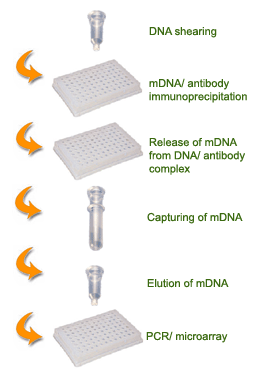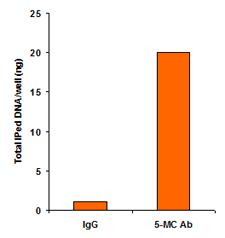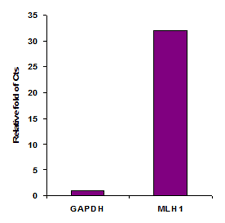
Schematic procedure of the Methylamp Methylated DNA Capture Kit.

For enrichment of methylated DNA using the kit, DNA (0.5 ug) isolated from MCF-7 cells was added into the microwell. Methylated DNA was captured by 5-mC antibody prebound to the microwells.

Captured methylated DNA was used for analyzing methylation level of GAPDH and MLH1 promoter with the use of primers and probes specific to GAPDH and MLH1 promoters, respectively.